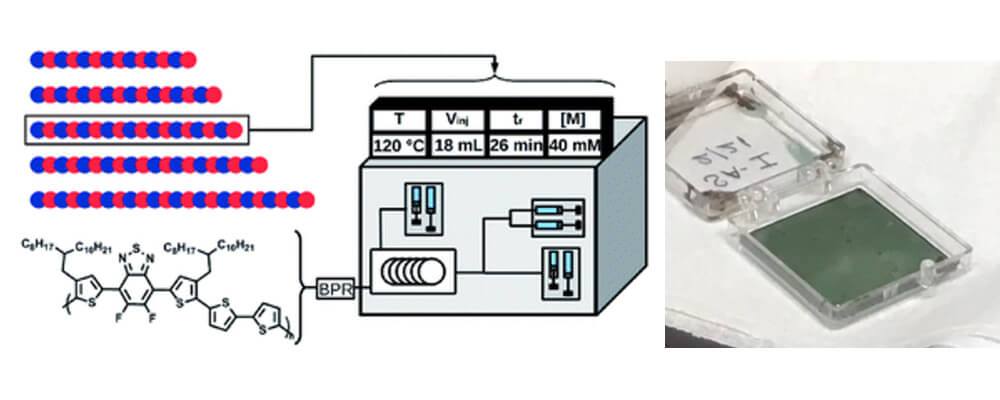Molecular weight tuning of low bandgap polymers by continuous flow chemistry: increasing the applicability of PffBT4T for organic photovoltaics
Geert Pirotte, Shruti Agarkar, Bing Xu, Junxiang Zhang, Laurence Lutsen, Dirk Vanderzande, He Yan, Pamela Pollet, John R. Reynolds, Wouter Maes and Seth R. Marder
J. Mat. Chem A.,
2017, 5, 18166; DOI:10.1039/C7TA05627C

08/2017
In this report, that brings together four research groups from the United States, Belgium and China, a novel continuous flow based C–H functionalization technology is used to prepare organic thin-film polymers for application in organic photovoltaic (OPV) devices in a reproducible and efficient fashion.
OPV devices offer great potential as renewable energy sources. There are two major challenges that hamper the implementation of polymer-based solar cells in large scale application; lack of availability of large quantities of high-quality polymer and translation of the device efficiencies seen in lab-based spin-coated devices to manufacturing scale large are printed devices.
Lab-based synthesis of these polymers is performed batch-to-batch, as such quality and performance can vary from batch-to-batch. The sensitivity of this reaction to specific reaction conditions means that reproducibility is low. This report employs continuous flow technology to overcome this hurdle, with a bespoke reactor designed and built that delivers, in a reproducible fashion, a technique to synthesize polymers in a reliable and highly controlled fashion. The observed control over the molecular weight of the flow process significantly surpasses that of the batch technique.
The results from this study provide a scalable and controlled technique for production of these valuable OPV polymers, furnishing products with properties suitable for use in roll-to-roll large area printing devices, solutions to both of the identified major challenges for this technology